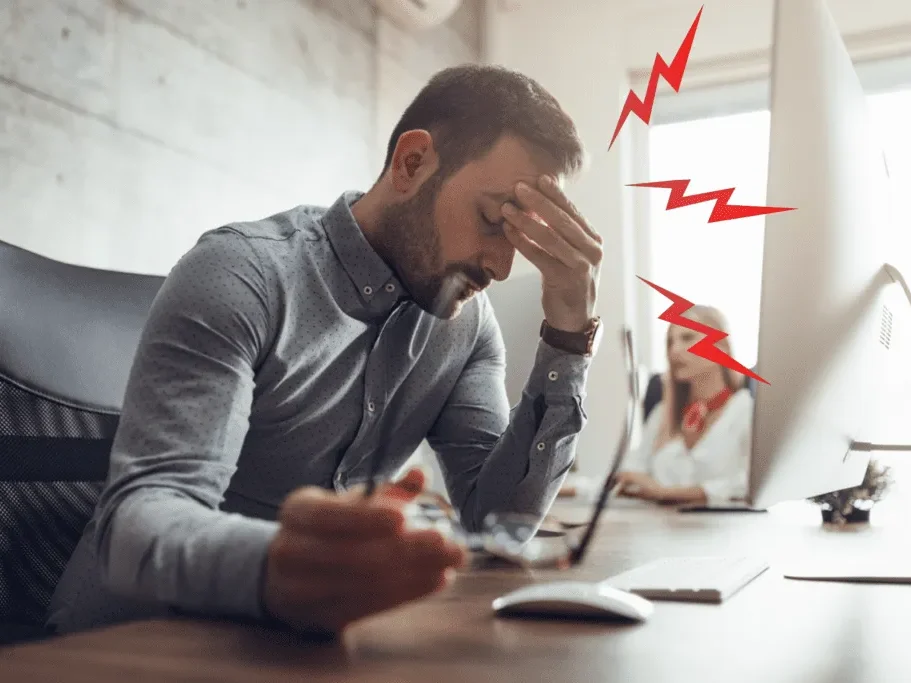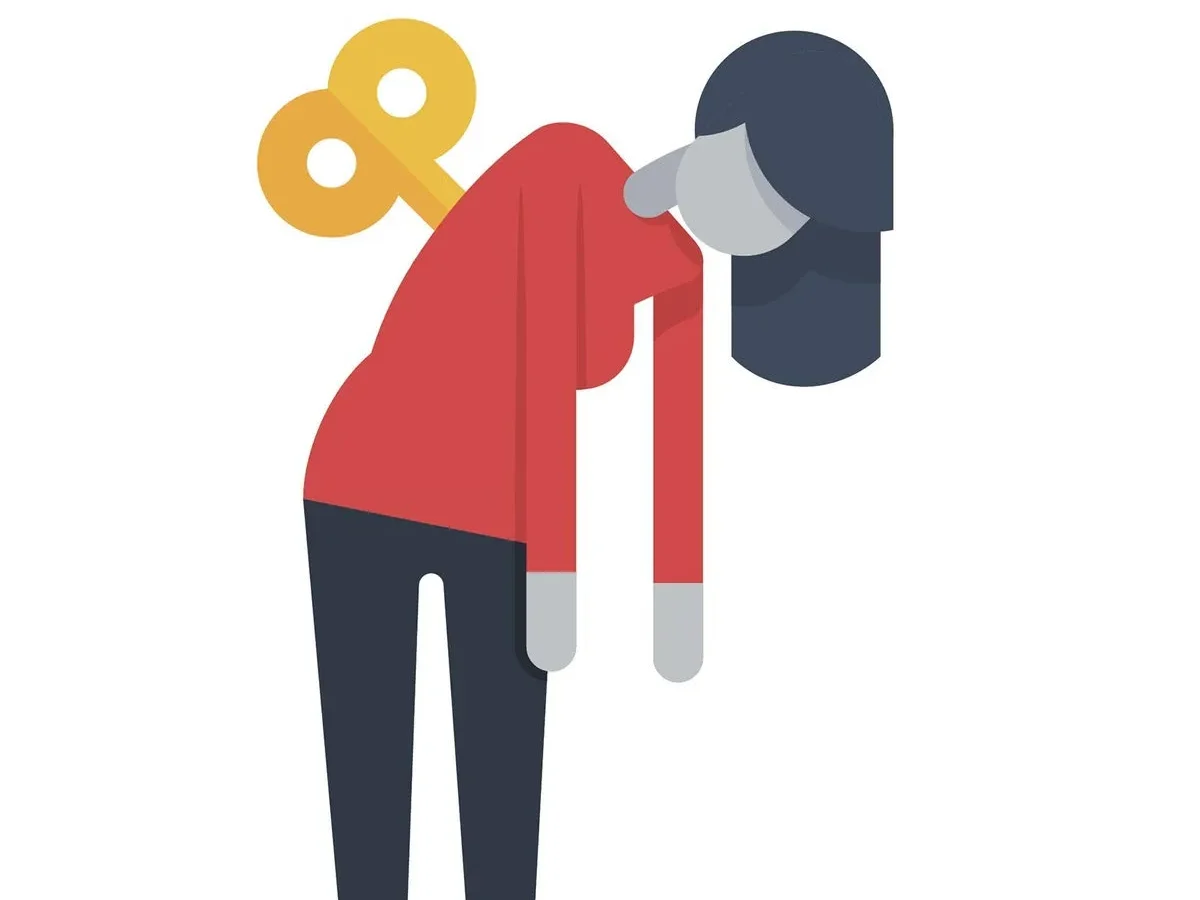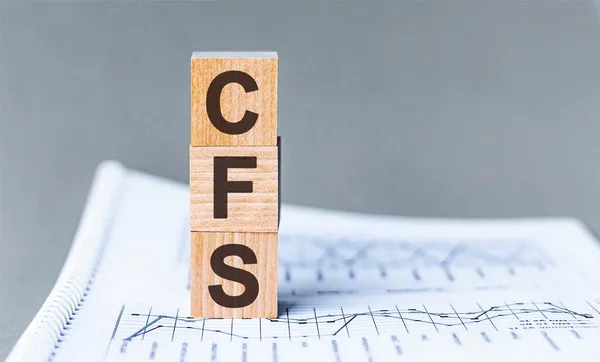Introduction
Chronic fatigue seems to be an endless war that drains your vigour and destroys your motivation, regardless of the amount of sleep you’ve gained. If fighting off low energy and constant fatigue seems like a never-ending struggle, you are not alone. This is the prime importance behind increasing energy levels and regaining the vitality needed throughout life. This article provides you with strategies on how to fight symptoms of chronic fatigue in a bid to help you regain normal energy levels. Understanding the root causes of this global menace and bringing into practice some of its more workable solutions can be an important step to regaining energy and revitalisation.
Understanding Chronic Fatigue
What is Chronic Fatigue?
Chronic fatigue is more than just feeling tired after a long day. It is persistent and, most of the time, an incapacitating condition, with long-term feelings of fatigue that do not improve with rest. Unlike typical tiredness, chronic fatigue can interfere with daily activities and affect your overall well-being. The Mayo Clinic suggests that chronic fatigue is worth being distinguished from those medical conditions which easily may have similar symptoms.

There are several reasons people have chronic fatigue, including:
Physical health issues
The reasons that can cause long-term fatigue are thyroid and diabetes disorders, anaemia, etc.
Psychological reasons
States such as depression and anxiety are directly connected with exhaustion.
Regimes
Irrational eating, the lack of exercise, or sleep can only increase fatigue.
Chronic stress
Continuous stress can easily lead you to an exhausted state and influence your health.
Proven Ways to Increase Your Energy
Nutrition to Boost Energy
Play of Balanced Diet
A well-balanced diet is important for the maintenance of high energy levels. Eating different types of nutrients will keep your body in top gear. Different foods that boost energy levels include.
Complex Carbohydrates
Whole grains, legumes, and vegetables provide energy for a longer period.
Lean Protein
Foods such as chicken, fish, and tofu help to repair worn-out tissues and stay energetic.
Healthy Fats
They supply energy to the brain; examples include nuts, seeds, and avocados.
Adding these foods to your diet can provide you with a sustained level of energy over the course of the day.
Hydration and Fatigue
Good hydration can prevent fatigue. Inadequate hydration can cause mild energy and attention decline. You should take at least eight glasses of water a day. Herbal teas and juices from fresh fruits can be added to the list of these drinks to increase hydration.
Regular Workouts
Of all the energy-boosting tips available out there, getting regular physical activity is probably among the most potent. Exercise does many things to increase energy levels. It improves circulation, elevates mood, and increases stamina. As reported by health.harvard.edu, aerobic activities like brisk walking, cycling, or swimming can help fight fatigue very effectively.
Designing an Exercise Program
To get started on an exercise program, the following should be kept in mind:
Make realistic goals, like 15-20 minutes a few times a week. Pick activities that you really like, so you can stick with them. Gradually build up the intensity as your energy improves.
Sleep and energy management
Sleep quality allows the body to get a restorative rest. The quality of sleep has a link with fatigue. To improve your sleep, the things you should probably consider include the following.
Sleep consistency
Go to bed and wake up at the same time daily.
Pre-sleep relaxation activities
Do a lot of quiet activities just before bedtime, such as reading.
sleep environment
The bedroom should be cool, dark, and quiet.
Making a Sleep-Conducive Environment
A good sleep environment greatly improves the quality of one’s sleep. Get a comfortable mattress and pillows, and avoid screens and bright light before going to bed.
Stress Management Techniques
Chronic stress depletes your energy and can make you feel very tired. Learning how to manage stress effectively is very key to improving your energy level. That is, while stress is known to fuel much energy and later turn on the body’s “fight or flight” response, it could also later result in exhaustion.

Stress-Reducing Techniques
Consider the following stress-reducing techniques:
Mindfulness and Meditation
Practice mindfulness through meditation to reduce stress and improve mental clarity.
Deep Breathing
Inhale deeply to relax your entire nervous system and promote relaxation.
Physical Relaxation
Engaging in yoga may also help, or you may give some progressive muscle relaxation exercises a shot.
Mental Health and Fatigue
Addressing Mental Health Conditions
Conditions like depression and anxiety, among other mental health problems, are usually a significant exacerbation of chronic fatigue disorders. Such conditions can be treated professionally. Therapy, counseling, and medication may help in countering the symptoms and making a person feel healthy and alive.

Building Up Mental Resilience
High levels of mental resilience make an individual able to cope with fatigue and stress very well. The increased mental resilience can be achieved by the following:
Positive Goal Setting
Building up confidence and motivation can be done by setting up realistic goals.
Increasing Social Connections
Building and maintaining relationships with friends and family will provide emotional support.
Self-Care
Doing things that relax and make a person happy.
Energy-Boosting Supplements
Several dietary supplements can offer energy and alleviate fatigue. The pain supplements used are:
Vitamin B12
This vitamin is for energy production and red blood cell formation.
Iron
This nutriment is useful in treating anaemia, the most common culprit for tiredness.
Coenzyme Q10
A coenzyme for cellular energy production.
Consult first your health care provider before buying and taking new dietary supplements just to make sure they are suitable for your condition.
Research Alternative Therapies
Complementary therapies, like acupuncture and herbal remedies, have additional potential for treating chronic fatigue. Acupuncture increases energy flow and can reduce the level of fatigue; well-known fatiguing-fighting herbs may include herbs like ginseng and rhodiola.
Creating Your Own Personal Fatiguing-Fighting Plan
Think about where your energy levels are at the moment.
First, if you had chronic fatigue, take note of your present condition. Chart the pattern of the fatigue throughout the day, and keep a log of potential triggers that seemed to make your condition worse.
Realistic goals with respect to feeling more energetic: at first, make a few changes so you can gradually grow into more strategies, if necessary.

Application and Modification of Your Plan
Go through with your plan to enhance energy step by step and jot down the changes. Be flexible and willing to make adjustments to your best needs. Don’t shy away from seeking help if need be.
Whom to Consult During Chronic Fatigue
1. Primary Care Doctor
The primary care doctor is usually the central portal to the management of the patient with chronic fatigue. He or she will provide an initial evaluation and aid in excluding the most common and important medical causes that can result in chronic fatigue.
Role of the PCP
Initial Assessment
A full history and physical examination are performed.
Diagnostic Tests
Orders initial tests such as blood tests to diagnose or rule out anemia, thyroid, or any other condition that may be contributing to fatigue.
2. Rheumatologist
He is a specialist who treats autoimmune diseases, such as musculoskeletal and other painful conditions. In rare cases, they present with chronic fatigue.
Role of the Rheumatologist
Diagnosis
The doctor will rule out the condition if the patient is suffering from fibromyalgia or chronic arthritis as they may stimulate fatigue; which lasts forever. This will usually not be the only symptom.
Treatment
A treatment plan for these people could be drug-based but will include lots of lifestyle advice.
3. Endocrinologist
Endocrinologists are physicians specialised in treating hormonal imbalances and disorders, which can sometimes be responsible for energy-sucking states like thyroid or adrenal insufficiency.
Role of Endocrinologist
Evaluation
Examining a patient for thyroid functions, adrenal glands, and other hormonal imbalances.
Treatment
Prescribing medicine through hormone replacement therapy and other medicines to treat imbalances.
4. Sleep Specialist
A sleep specialist can help if your chronic fatigue is related to sleep disorders like sleep apnea or insomnia.
Role of the Sleep Specialist
Sleep Studies
Conducts tests like polysomnography for diagnosing sleep disorders.
Treatment
Recommends treatment courses like CPAP for sleep apnea.
Sleep Hygiene
Offers advice on improving the quality of sleep and sleep hygiene practices in general.
5. Psychologist or Psychiatrist
This would mean a mental health professional, including a psychologist or psychiatrist for psychological factors that can be associated with chronic fatigue like depression or anxiety.
Psychologist Counselling
Offers therapy to discover underlying mental health conditions and coping techniques.
Provides support in dealing with the stress and emotional difficulties caused by chronic fatigue
Role of a Psychiatrist
Medication Management
Can prescribe and monitor psychiatric medications if needed.Integrated Care
With other health care providers for a more holistic treatment plan.
6. Nutritionist or Dietitian
For treatment of chronic fatigue due to deficiencies in the diet and poor nutrition.
The Nutritionist Diet Analysis
Review your diet and pinpoint needs for improvement.
Nutrition Planning
Draws a personal eating regimen that aims to boost energy and health.
Education
Teaches you about balanced nutrition and healthy eating.
7. Physical Therapist
Chronic fatigue can be professionally managed with an increasing activity level and general fitness, as piloted with the help of physical therapists.
Role of the Physical Therapist
Exercise Plan
An individualised exercise program will be prescribed for improved energy and endurance.
Rehabilitation
The patient recovers from physical strength and endurance.
Education
Teaches the person safe exercise practices and strategies to prevent fatigue
8. Alternative Medicine Practitioner
An alternative medicine practitioner—such as an acupuncturist or herbalist—may be considered in this respect with some other complementary strategies.
Role of the Alternative Medicine Practitioner
Acupuncture
In this treatment, needles are placed at pressure points for restoration to good health.
Herbal Remedies
The practitioner shall suggest various herbal supplements for eventual source energy gain and a unified approach to dealing with symptoms.
Holistic Approach
He will render holistic support to the management of chronic fatigue with the use of a number of alternative methods.


